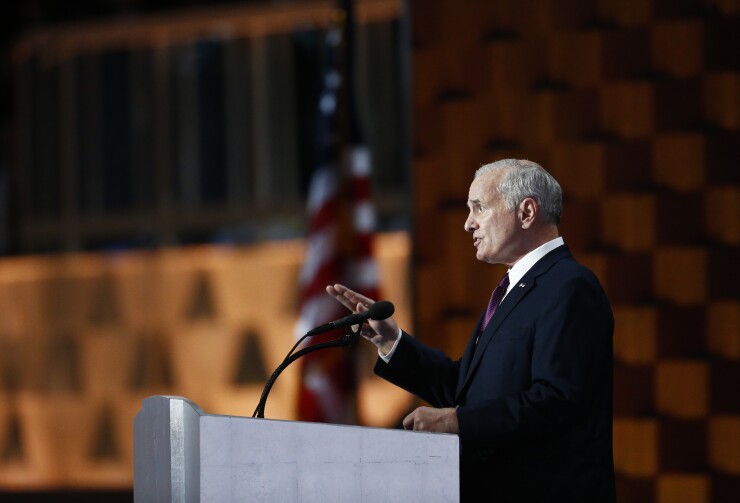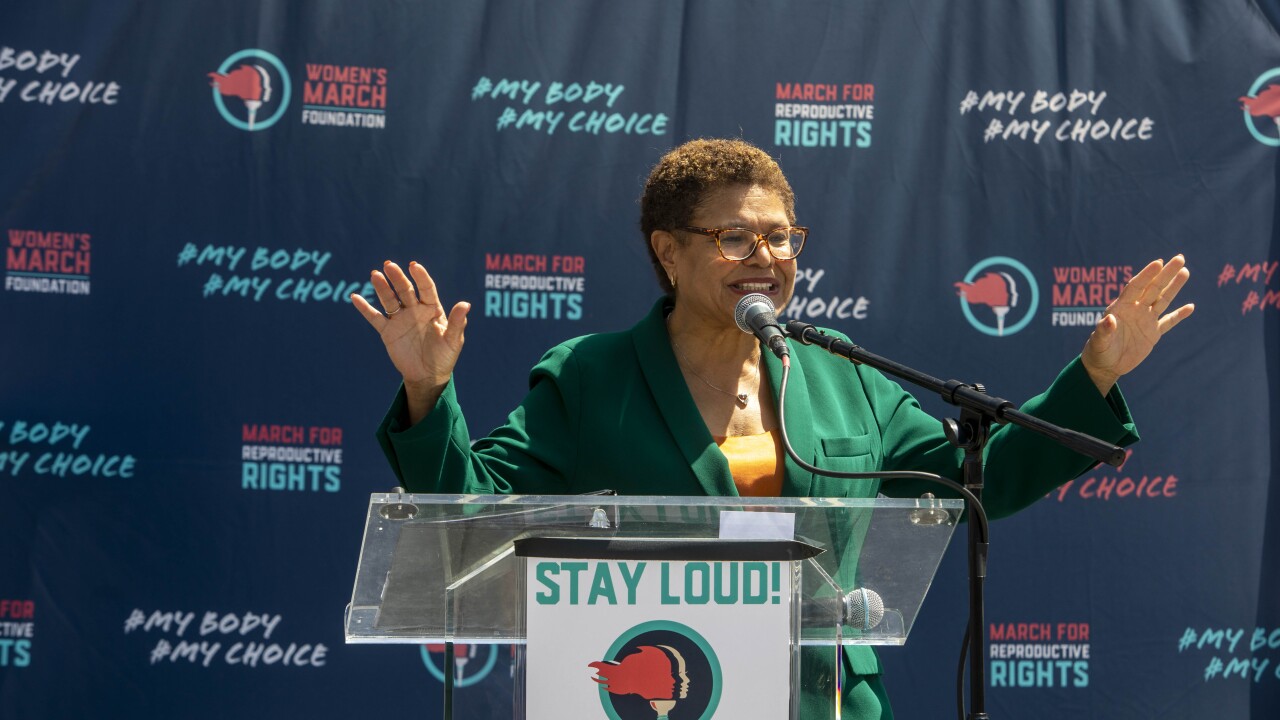CHICAGO – One of Minnesota’s bond ratings is in jeopardy due to a feud between Gov. Mark Dayton and the legislature’s GOP majorities over taxes.
Dayton's issued a line-item veto of the legislature’s $82 million appropriation, money the Senate uses to cover lease payments on $80.1 million of certificates of participation issued in 2014 for its office building.

The veto puts at risk the November payment, leading S&P Global Ratings to put the state’s AA-plus rating and positive outlook on CreditWatch with negative implications Thursday. The veto equates to a non-appropriation of needed revenues on the 2014 COPS and S&P is concerned over a “lack of clarity about how the rental payments and debt service will be paid.”
Dayton, a member of the Democratic Farmer Labor party, opposed the Republican tax cut plans, but he signed most of the bills that made up the $46 billion biennial budget package late last month, along with a nearly $1 billion capital budget known as the bonding bill, and allowed the tax bill to become law without his signature.
The line-item veto of the legislature's appropriation was an attempt to force Republicans back to the table to negotiate details of the $650 million tax bill.
“In our view, the governor and legislative leaders have politicized the appropriation in their dispute over the budget,” said S&P analyst Eden Perry. “In that sense, the lack of agreement over the lease appropriation reflects unfavorably on the state's willingness to fund all of its debt service payments despite its ability to pay remaining very strong.”
Dayton’s veto prompted GOP leaders on Tuesday to file a lawsuit challenging the constitutionality of the action and Dayton announced Wednesday the hiring of attorney Sam Hanson, a former state Supreme Court justice, to handle the case.
The state has time to resolve the issue as the lack of appropriation has not triggered any indenture violations such as an extraordinary mandatory redemption of the lease. The bonds lack an automatic termination or acceleration feature and only the Department of Administration has the option to terminate the lease.
The lease payment is due November 14 with a debt service payment of $1.9 million due on December 1.
Senate GOP leaders have said they would prioritize payroll over debt service with existing funds on hand.
“It is unclear if the governor and the Legislature will reach an agreement in the near term such that either the Senate will cover the lease rental payments or the Department of Administration will appropriate for the lease,” S&P said. “Even though the Department of Administration could pay rental payments from other legally available funds appropriated to the department under the terms of the lease it has not yet done so.”
The state’s credit profile will suffer even if it makes the debt service payment, because the feud raised red flags for S&P which said it would “likely revise the outlook to stable rather than back to positive because this situation has illustrated a departure from what has been very strong budget management and is not commensurate with higher rated credits.”
Minnesota Management and Budget Commissioner Myron Frans stressed in a statement that time remains for the state to resolve the issue and blamed Senate Majority Leader Paul Gazelka, R-Nisswa, for putting the state’s fiscal condition at risk by refusing to prioritize lease payments.
“As the state’s chief financial officer I want to express the state’s commitment to fiscal integrity and financial obligations generally,” Frans said. “In fact, Governor Dayton exercised his line-item veto authority to urge the legislature specifically to reduce certain tax cuts because the size of the tax cuts may ultimately risk our state’s financial stability going forward.”
The feud resembles past periods of divided political leadership that led Minnesota to downgrades, a partial government shutdown, and structural deficits.
There is a notable difference. The past disputes were over how to close big budget gaps. Now, state coffers are flush due to an improved economy and tax hikes on the state’s wealthiest citizens Dayton pushed through in May 2013 when he enjoyed Democratic majorities.
The current dispute is over how to spend a portion of the surplus. Dayton in May vetoed bills appropriating funds for public schools, health and human services, and other departments after negotiations broke down.
When new bills arrived on his desk they included $650 million in targeted tax cuts and other changes that veered from Dayton’s proposed spending priorities. The GOP also tied Department of Revenue funding to the tax bill, so a veto of the tax cuts would have consequences.
Dayton averted a government shutdown by signing most of the appropriation bills and allowing the tax bill to become law without his signature.
The GOP's lawsuit, filed Tuesday in Ramsey County District Court, argues that "the vetoes impermissibly control, coerce, and restrain the action of the Legislature in the exercise of its official and constitutional powers and duties."
Dayton countered that the state could not afford what he called “fiscally irresponsible tax cuts” that benefit “big tobacco, the estates of multimillionaires, and big businesses” and “will cost the state of Minnesota over $5 billion during the next decade.”
The state’s February forecast added $250 million to the surplus bringing it to $1.65 billion. The state's cash flow and budget reserve accounts hold $2 billion.
Minnesota won back one of its triple-A ratings last year when Fitch Ratings raised its rating to AAA from AA-plus. Moody's Investors Service rates it Aa1. Rating agencies have warned of the negative impact a return to political gridlock could have on the state’s credit profile should its economic picture deteriorate.





